We’re into the top ten now, and this time I’ve managed to rank the albums in order rather that just list them alphabetically. So with no further ado…
10: Rebecca Downes – Believe
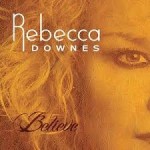 Deserved winner of Best Female Vocalist and Best Breakthrough Artist at the British Blues Awards, Rebecca Downes has a great voice, with range and power as well as emotional depth, equally at home with soulful ballads as belting out hard rockers. When combined with her talented backing band result is a hugely varied record, combining blues with hard rock, funk and soul.
Deserved winner of Best Female Vocalist and Best Breakthrough Artist at the British Blues Awards, Rebecca Downes has a great voice, with range and power as well as emotional depth, equally at home with soulful ballads as belting out hard rockers. When combined with her talented backing band result is a hugely varied record, combining blues with hard rock, funk and soul.
9: Tilt – Hinterland
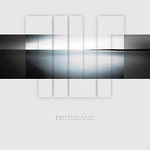 The band including Fish alumni Steve Vantis, Robin Boult and Dave Stewart deliver a hard-rocking album. The layered sound and powerful bass grooves recall Porcupine Tree and Steve Vantsis’ work with Fish.
The band including Fish alumni Steve Vantis, Robin Boult and Dave Stewart deliver a hard-rocking album. The layered sound and powerful bass grooves recall Porcupine Tree and Steve Vantsis’ work with Fish.
But Paul Dourley is a very different sort of singer; his soulful vocals have the occasional hints of Peter Gabriel and Lou Gramm, and if anything it’s his performance that lifts this record from a good one to a great one.
8: Ihsahn – Arktis
 The fiendishly inventive Norwegian black metallers reign in the avant-garde experimentalism of 2013′s Das Seelenbrechen in favour of an album of more straightforward metal songs. But “straightforward” is a relative thing for a band like Ihsahn; there’s a lot of varied creativity on display here, balancing face-melting guitars with occasional moments of atmospheric beauty,
The fiendishly inventive Norwegian black metallers reign in the avant-garde experimentalism of 2013′s Das Seelenbrechen in favour of an album of more straightforward metal songs. But “straightforward” is a relative thing for a band like Ihsahn; there’s a lot of varied creativity on display here, balancing face-melting guitars with occasional moments of atmospheric beauty,
7: Mantra Vega – The Illusion’s Reckoning
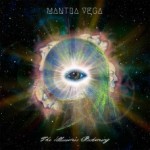 The collaboration between former Mostly Autumn singer Heather Findlay and Sound of Contact’s Dave Kerzner results in a record with a strong 70s vibe.
The collaboration between former Mostly Autumn singer Heather Findlay and Sound of Contact’s Dave Kerzner results in a record with a strong 70s vibe.
There are nods to Stevie Nicks era Fleetwood Mac and the rootsier side of Led Zeppelin, as well as the folky feel of Heather Findlay’s work with Odin Dragonfly and early Mostly Autumn. It’s an impressive work that’s as good as anything either of them have done.
6: Big Big Train – Folklore
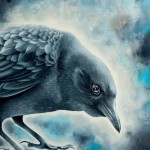 Big Big Train continue to be better than anyone else at invoking the spirit of 1970s English pastoral progressive rock. Again the lyrics are steeped in English landscapes and socio-economic history.
Big Big Train continue to be better than anyone else at invoking the spirit of 1970s English pastoral progressive rock. Again the lyrics are steeped in English landscapes and socio-economic history.
The songs cover subjects from London’s lost rivers to World War 2 RAF pigeons, with music that sometimes evokes the mood of albums like Genesis’ “Trespass”, and at other times is closer to the electric folk-rock of bands like Steeleye Span.





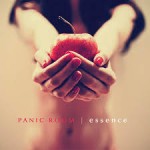 The Kickstarter-funded unplugged album reworks favourites from the band’s first three albums into radically different forms, resulting in a beautiful record than emphasises Anne-Marie Helder’s remarkable vocal talent. Though it crosses the streams with the acoustic side-project Luna Rossa to some extent it’s still got more of a Panic Room vibe. It’s not entirely acoustic, since new guitarist Dave Foster cuts loose on electric a few times. There are a couple of new songs too, the classic Anne-Marie Helder ballad “Rain & Tears & Burgundy”, and “Denial”, the first time Panic Room have ever recorded a blues number.
The Kickstarter-funded unplugged album reworks favourites from the band’s first three albums into radically different forms, resulting in a beautiful record than emphasises Anne-Marie Helder’s remarkable vocal talent. Though it crosses the streams with the acoustic side-project Luna Rossa to some extent it’s still got more of a Panic Room vibe. It’s not entirely acoustic, since new guitarist Dave Foster cuts loose on electric a few times. There are a couple of new songs too, the classic Anne-Marie Helder ballad “Rain & Tears & Burgundy”, and “Denial”, the first time Panic Room have ever recorded a blues number.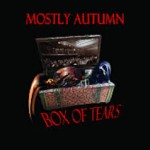 A live recording of last year’s “Dressed in Voices”, an album regarded by many as their career defining masterpiece. Unlike their other recent live albums this one’s a single disk of the Dressed in Voices set rather than the whole show (Do we really need yet another live version of “Evergreen” or “Heroes”? I don’t think so). But like those other live albums it does capture the power and intensity of the Mostly Autumn’s live performances, the big sound of the seven-piece band at full tilt.
A live recording of last year’s “Dressed in Voices”, an album regarded by many as their career defining masterpiece. Unlike their other recent live albums this one’s a single disk of the Dressed in Voices set rather than the whole show (Do we really need yet another live version of “Evergreen” or “Heroes”? I don’t think so). But like those other live albums it does capture the power and intensity of the Mostly Autumn’s live performances, the big sound of the seven-piece band at full tilt.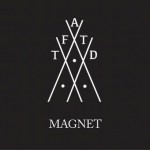 Matt Stevens’ four-piece instrumental noise merchants could be described as a sort of punk version of King Crimson. Their latest EP sees a move away from the garage-rock feel of their last record. “Spooky Action”. Magnet is darker and denser, with more of a focus on the post-rock and electronica side of their music. Like all of their records, it has feet in many camps, defies simple categorisation, and makes a rewarding listen for anyone who wants to get out of their musical comfort zones.
Matt Stevens’ four-piece instrumental noise merchants could be described as a sort of punk version of King Crimson. Their latest EP sees a move away from the garage-rock feel of their last record. “Spooky Action”. Magnet is darker and denser, with more of a focus on the post-rock and electronica side of their music. Like all of their records, it has feet in many camps, defies simple categorisation, and makes a rewarding listen for anyone who wants to get out of their musical comfort zones. A taster from the forthcoming album “The Illusion’s Reckoning”, three songs with a strong 70s classic rock vibe with echoes of Fleetwood Mac and Led Zeppelin. The lead song in particular is lovely, with Heather Findlay playing to her strengths as a vocalist, and features a short but very effective guitar break from Dave Kilminster.
A taster from the forthcoming album “The Illusion’s Reckoning”, three songs with a strong 70s classic rock vibe with echoes of Fleetwood Mac and Led Zeppelin. The lead song in particular is lovely, with Heather Findlay playing to her strengths as a vocalist, and features a short but very effective guitar break from Dave Kilminster.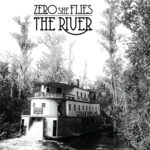 The band formerly know as Mermaid Kiss return with a new singer in the shape of Maria Milewska and a new name. The four-track suite “The River” was originally slated to be part of a full-length album, but has mow been spun off as a separate EP on its own. It’s largely acoustic, piano and acoustic guitar based songs with woodwind and strings for colour, plus some touches of electronica, and Maria Milewska proves to be excellent singer. Highlights are the woodwinds meet trip-hop instrumental “The Undertow” and the gorgeously atmospheric closing number “Rivergirl”, but the whole EP is excellent.
The band formerly know as Mermaid Kiss return with a new singer in the shape of Maria Milewska and a new name. The four-track suite “The River” was originally slated to be part of a full-length album, but has mow been spun off as a separate EP on its own. It’s largely acoustic, piano and acoustic guitar based songs with woodwind and strings for colour, plus some touches of electronica, and Maria Milewska proves to be excellent singer. Highlights are the woodwinds meet trip-hop instrumental “The Undertow” and the gorgeously atmospheric closing number “Rivergirl”, but the whole EP is excellent.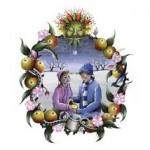 This intermediate release filling the gap before their next full-length album eschews ambitious multi-part epics in favour of more straightforward songwriting. But most of the things we’ve come to expect from Big Big Train are present; big soaring melodies and rich layered arrangements that evoke the spirit of 70s pastoral progressive rock with lyrics steeped in English landscapes and history. The largely instrumental keyboard-heavy “Mudlarks” ticks a lot of classic prog-rock boxes, but with the woodwinds, violins and 12-string guitars there’s also an element of 70s electric folk-rock. It’s all delightfully retro in its use of vintage guitars and keyboard sounds, but that’s always been a major part of their appeal.
This intermediate release filling the gap before their next full-length album eschews ambitious multi-part epics in favour of more straightforward songwriting. But most of the things we’ve come to expect from Big Big Train are present; big soaring melodies and rich layered arrangements that evoke the spirit of 70s pastoral progressive rock with lyrics steeped in English landscapes and history. The largely instrumental keyboard-heavy “Mudlarks” ticks a lot of classic prog-rock boxes, but with the woodwinds, violins and 12-string guitars there’s also an element of 70s electric folk-rock. It’s all delightfully retro in its use of vintage guitars and keyboard sounds, but that’s always been a major part of their appeal.